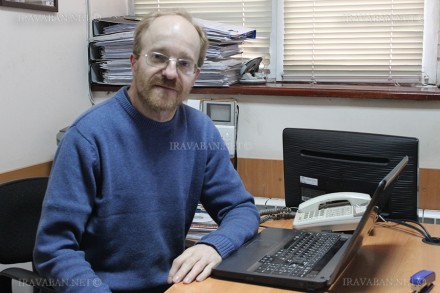In order to adopt the 2015-2018 anti-corruption draft strategy, a council is to be established. In an interview with Iravaban.net, Carl Ulbricht, an international expert in the “Multi-faceted anti-corruption promotion” project, noted that effective anti-corruption work requires a powerful and independent body. “If the government is going to establish an Anti-corruption council, which will be chaired by the Prime Minister, and the members of which will include the representatives of state bodies, opposition parties and NGOs, it is unlikely that it will be able to be an effective decision-making body” said the expert.
He also stated his belief that such a body will turn out to be consultative in nature. “One can assume this from its structure. After all, there’s a saying: ‘If you want to avoid making a difficult decision, form a committee’. So in reality this council won’t be able to adopt the necessary decisions, nor will it be able to implement them. And if therefore a consultative body is being established, then I recall that we had such an attempt in the past, when for months or years no sessions were convened, and when a session was held it was ineffective. The only thing to note is that at the last session, which was in December 2012, many NGOs were invited and were able to express their opinions. But unfortunately only 2 NGO representatives will be included in the new council, and open sessions are not foreseen”, explained the international expert.
Bearing in mind Armenia’s unsuccessful anti-corruption struggle, he noted that the UN Convention against Corruption mentions two important qualities in order to ensure an effective struggle: independence and power. “In contrast, it appears that the state bodies operating in this sector are either not sufficiently independent, or they have very weak powers. It seems that the government, instead of creating a new, independent and powerful body, wants to repeat the previous unsuccessful experience” said Mr. Ulbricht.
The expert also expressed his opinion about the draft anti-corruption strategy. “It’s very weak from the point of view of institutional reforms. No serious reforms are envisaged, it even does not acknowledge the need to establish an independent body in the future. The issue is not just about law enforcement. International experience shows that in those developing countries where an independent body is operating successfully – for example Singapore or Hong Kong in China – those bodies are also engaged in anti-corruption education of society, particularly youth. This is an important, extensive and long-term function, to be implemented in schools, higher education institutions and state bodies. However the drafters of the strategy don’t realize even this issue”, Mr. Ulbricht concluded.
Iravaban.net































